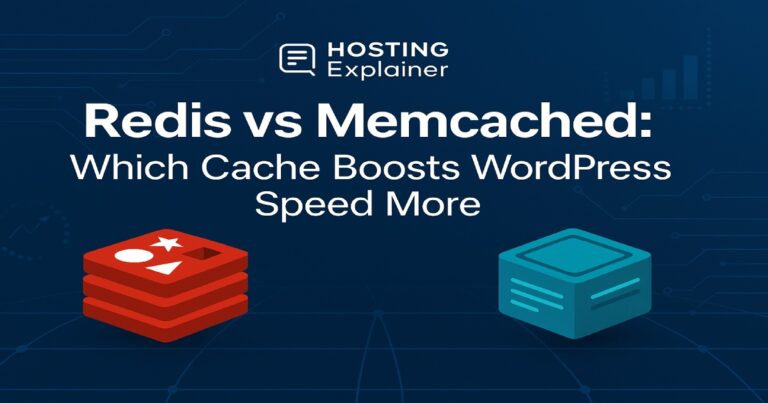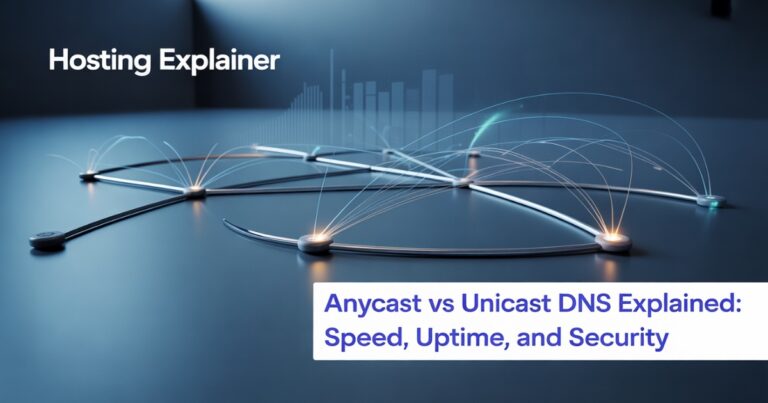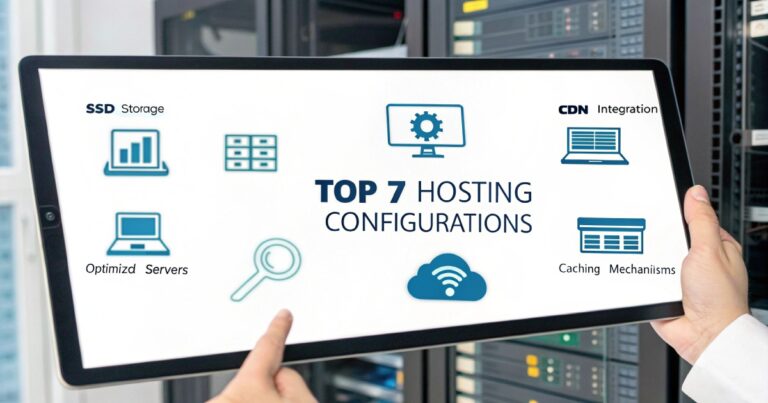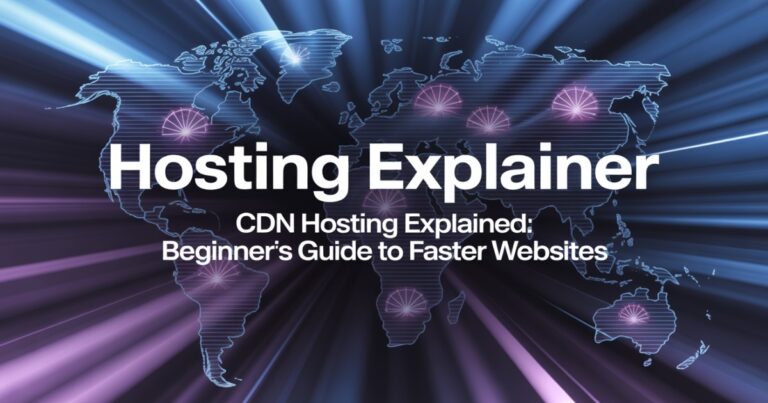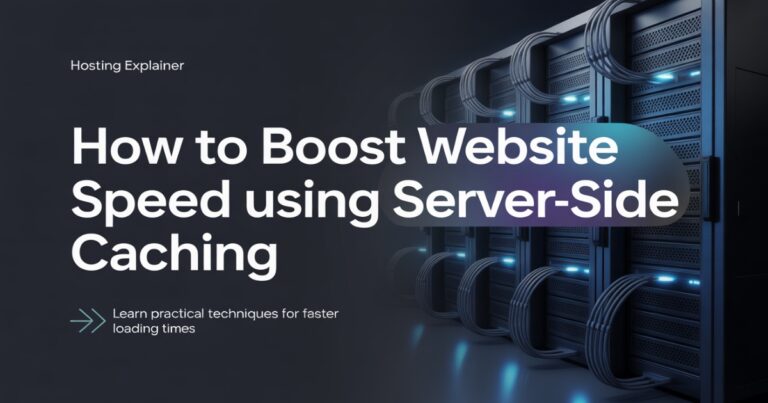Cheap vs Premium Hosting: Which Should You Choose?
When I built my first website, I thought any hosting would do. I picked the cheapest plan I could find and felt proud of saving a few dollars a month. Within weeks, I realized my site was painfully slow, support was barely responsive, and downtime was becoming a real problem.
That’s when I learned a critical lesson: not all hosting is created equal. There’s a significant gap between cheap vs premium hosting, and understanding it can save you time, money, and stress.
In this guide, I’ll explain what sets them apart and how to decide where your hosting investment should go. I’ll share insights from my own experience, real-world examples, and practical advice to help you make the right choice.
Cheap vs. Premium Hosting What’s the Real Difference?
What Cheap Hosting Means
Cheap hosting typically refers to budget hosting plans designed for websites with minimal requirements. They’re often shared hosting, meaning many websites share the same server resources.
Prices can start as low as $2–$5 per month, which is appealing for hobbyists or personal projects. Here’s what cheap hosting usually offers:
- Limited bandwidth and storage: Only enough for small websites or blogs.
- Basic performance: Load times can be slow, especially during traffic spikes.
- Minimal support: Most cheap hosts provide only email-based or ticket support, which may take days to respond.
Cheap hosting can work if your website has low traffic, isn’t revenue-critical, or is a personal project. But as soon as your site grows, you’ll quickly notice the limitations.
What Premium Hosting Offers
Premium hosting is built for performance, reliability, and scalability. Unlike shared servers, premium hosting often provides dedicated or isolated resources for your site.
Key benefits include:
- Optimized speed and performance: Faster load times improve user experience and SEO.
- Scalable resources: VPS, cloud, or dedicated server options let you grow without technical headaches.
- Managed hosting features: Automatic updates, backups, and server optimizations.
- Advanced security: Firewalls, malware scans, and DDoS protection.
- Reliable customer support: 24/7 expert assistance to resolve issues quickly.
Premium hosting is ideal for businesses, eCommerce websites, or any project where uptime and speed directly affect revenue. Investing in premium hosting often pays off through better conversions, customer trust, and long-term savings.

Risks and Limitations of Cheap Hosting
Earlier, I shared my own struggle with budget hosting. Here’s why cheap hosting can become a problem:
- Performance issues: Sites on cheap hosting often load slowly, particularly during traffic spikes.
- Security risks: Shared servers are easier targets for malware and hacking.
- Weak customer support: Quick resolution is rare, leaving you to troubleshoot alone.
- SEO impact: Slow load times and downtime can hurt search rankings.
I once launched a small online store on a cheap shared hosting plan. On launch day, traffic surged and the site crashed multiple times. The experience cost me potential sales and highlighted how the “cheap route” can end up being costly.
Even for personal or hobby sites, slow performance can frustrate visitors and reduce engagement. That’s something worth considering if your site represents your brand or online presence.
Why Premium Hosting Might Be Worth the Investment
Hosting Reliability and Uptime
Premium hosting guarantees uptime of 99.9% or higher, meaning your site stays online almost all the time. For business or revenue-generating sites, downtime can translate directly into lost income.
Scalability and Resources for Growing Sites
Cheap hosting locks you into tight limits, making growth difficult. Premium hosting provides resources that scale with your website’s traffic and performance needs. You can upgrade RAM, storage, and bandwidth without switching providers or migrating your site.
Advanced Security & Data Protection
Premium hosts include advanced security tools like firewalls, malware scanning, and automatic backups. This protects your site from cyberattacks, which are becoming increasingly common. For eCommerce sites or sites handling customer data, this protection is non-negotiable.
Customer Support Quality
Fast, competent support is a premium feature that often makes the difference between solving a problem in minutes or hours of frustration. Many premium hosts offer 24/7 live chat or phone support, staffed with trained professionals who understand WordPress, eCommerce, and server issues.
From my experience, having reliable support available immediately is a game-changer. It saved me hours of downtime during a traffic spike, preventing potential revenue loss.
Cost Comparison: Cheap vs. Premium Hosting
Price is the most obvious difference, but it’s worth evaluating value, not just cost.
- Cheap hosting: $2–$5/month
- Premium hosting: $15–$50+/month
While cheap hosting looks tempting, the hidden costs can add up: downtime, slow site speed, lost sales, or poor SEO. Premium hosting may cost more upfront but offers better performance, support, and reliability.
| Feature | Cheap Hosting | Premium Hosting |
| Price | $2–$5/month | $15–$50+/month |
| Speed | Slow to moderate | Fast, optimized |
| Support | Limited or slow | 24/7 expert help |
| Security | Basic | Advanced tools |
| Scalability | Very limited | Flexible and scalable |
Think about it this way: a premium host can save money and stress in the long run, especially if your website drives business or revenue.
When to Choose Cheap Hosting and When Not To
Cheap hosting is suitable when:
- You’re testing a new website idea or concept.
- Running a personal blog, portfolio, or hobby site.
- Traffic is minimal, and downtime won’t affect you financially.
It’s not ideal if:
- You run a business where uptime and performance affect revenue.
- Your site is SEO-dependent or eCommerce-based.
- You want better security and expert support.
In short, cheap hosting is fine for beginners or low-stakes projects. But if your website represents your brand or business, it may be more of a risk than a saving.
When to Upgrade to Premium Hosting
Signs it’s time to switch:
- Traffic spikes cause frequent downtime.
- Visitors complain about slow load times.
- Your website requires higher security or compliance.
- Support from your current host is slow or unhelpful.
I upgraded to premium hosting after experiencing multiple outages on my small business site. After switching, load times improved, uptime stabilized, and support became proactive rather than reactive. This transition made my online operations much smoother and gave me peace of mind.
Cheap vs. Premium Hosting: Which One Should You Invest In?
The choice depends on your goals, budget, and website type:
- Personal projects or hobby sites: Cheap hosting works well for now.
- Business websites or eCommerce: Premium hosting is usually worth the investment.
Consider hosting as the foundation of your site. Cheap hosting may save money upfront, but premium hosting ensures your foundation is solid. Performance, reliability, security, and scalability are investments that pay off in the long term.
FAQs About Cheap vs. Premium Hosting
1. Is cheap hosting good for beginners?
Yes. Cheap hosting works for hobby sites or beginners. But as your site grows, you’ll likely need to upgrade.
2. What’s the main difference between cheap and premium hosting?
Cheap hosting has limited resources and shared servers. Premium hosting offers faster speed, dedicated resources, and expert support.
3. Is premium hosting worth it for small businesses?
Yes. Premium hosting provides reliability, security, and performance that build trust with your audience.
4. Can cheap hosting affect SEO rankings?
Yes. Slow load times and frequent downtime negatively impact search engine rankings and user experience.
5. When should I upgrade from cheap to premium hosting?
Upgrade when your site experiences growth, traffic increases, or downtime starts to impact your business.
Making the Smart Hosting Choice
We’ve covered the differences between cheap vs premium hosting, the risks of low-cost plans, and the benefits of premium options. Cheap hosting works for small or low-traffic sites.
But premium hosting is the safer, smarter investment for businesses, eCommerce, and serious projects. Think of hosting as a foundation.
A strong foundation means faster load times, better security, reliable support, and happier visitors. From my experience, the benefits of premium hosting outweigh the higher upfront cost, especially if your site is central to your business or online presence.

